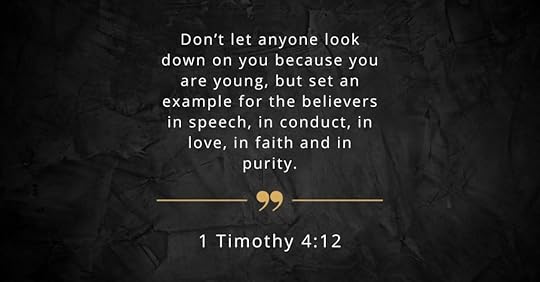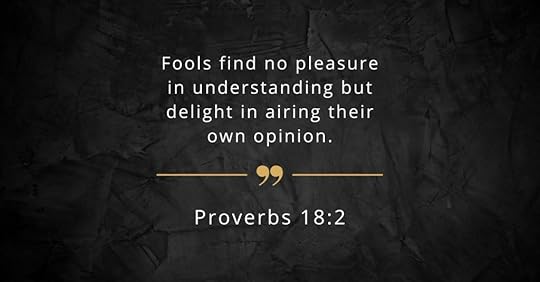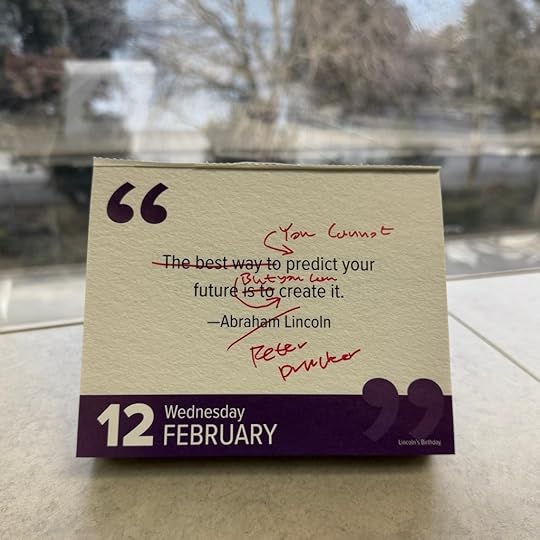Nick Chellsen's Blog
October 6, 2025
Why Most Advice Sucks
Ever gotten a piece of advice that worked great for the person giving it, but was useless for you?
You say: “I’m struggling to find time for my side hustle.”
They say: “Easy. Just wake up at 5 AM.”
That might have worked for them. But if you’re already heading into your full-time job at 5 AM, that advice won’t help.
Here’s the real problem: most advice focuses on practices instead of principles.
Practice : Wake up at 5 AM to work on your side hustle. Principle : Create margin in your day to work on your side hustle.Practices are rigid. Principles are adaptable.
So next time advice doesn’t fit, don’t dismiss it. Dig a little deeper and find the principle beneath it. That’s where the real wisdom is.
This is exactly why I write about leadership principles, not just practices.
Practices might work for one leader in one context. Principles work for anyone, anywhere.
If you want to dig deeper, I discuss 33 leadership principles from the life of Jesus in my book, A Leader Worth Imitating.
SubscribeSubscribe to have posts like this emailed to you.
September 25, 2025
The Four Components of Emotional Intelligence
You may have heard leadership gurus say something along the lines of, “EQ is more important than IQ.” But what exactly is EQ, and how do you increase it?
Emotional Intelligence (EQ) is a leadership skill that focuses on one’s personal and social competencies. In their book Emotional Intelligence 2.0, Travis Bradberry and Jean Greaves outline four components of emotional intelligence:
Self-Awareness – “To know yourself as you really are” (p. 61).Self-Management – “Your ability to use awareness of your emotions to actively choose what you say and do” (p. 97).Social Awareness – “Your ability to recognize and understand the emotions of others” (p. 136).Relationship Management – “(To have) a relationship that has staying power and grows over time, and in which your needs and the other person’s needs are satisfied” (p. 177).Let’s take a closer look at each one.
1. Self-AwarenessSelf-awareness is one of the leadership principles I discuss in my book A Leader Worth Imitating (Principle 20).
When we look at the leadership of Jesus, we see He taught His disciples to be self-aware. Matthew 7:3–5 paints a vivid picture:
“Why do you look at the speck of sawdust in your brother’s eye and pay no attention to the plank in your own eye? … First take the plank out of your own eye, and then you will see clearly to remove the speck from your brother’s eye” (NIV).
Talk about blind spots! And yet, this passage reminds us the focus isn’t on pointing out others’ flaws but becoming aware of our own.
The tricky thing about blind spots is we can’t see them on our own. That’s why feedback is an essential part of self-awareness. You might think you empower your team, but they might feel micro-managed. Inviting honest feedback reveals what you can’t see and strengthens your leadership.
Think about it: Do you want to grow in self-awareness? Who is someone you can ask for feedback?
2. Self-ManagementIt’s one thing to understand your emotions; it’s another thing to control them. That’s where self-management comes in.
Self-awareness tells you what stresses you out; self-management helps you handle that stress. The two go hand in hand. To be an emotionally intelligent leader, you need to learn not only to notice your emotions but also to respond to them in a way that benefits your team.
Think about it: How can you better manage your emotions?
3. Social AwarenessWhile the first two components focus on yourself, the last two focus on others.
Social awareness is the ability to recognize and understand the emotions of others, especially your team. To do this, you need to spend time with them. In A Leader Worth Imitating (Principle 2), I explain that one of the greatest gifts you can give someone is your presence. Presence allows you to notice both calm and stress in your team members.
An emotionally intelligent leader doesn’t just manage their own emotions, they are also attentive to the emotions of those around them.
Think about it: Do you know what calms your team members down? Do you know what stresses them out?
4. Relationship ManagementFinally, relationship management is about building healthy, lasting relationships where both parties’ needs are met.
Bradberry and Greaves note that feedback is one of the key strategies for growing in relationship management. Feedback isn’t just about leaders receiving it, it’s also about leaders giving it.
In A Leader Worth Imitating (Principle 19), I describe feedback as empowering your team to ask questions, make suggestions, raise concerns, and challenge ideas. Healthy relationships require mutual feedback. For example, you might think you remain calm under stress, but your team might see otherwise. Likewise, you may need to point out blind spots in a team member.
Think about it: How often does your team give you feedback? How often do you give it back?
Final ThoughtsEmotional intelligence is not a “soft skill” to add to your leadership, it’s central to it. By growing in self-awareness, self-management, social awareness, and relationship management, you not only strengthen your leadership but also build trust, presence, and lasting influence with your team.
SubscribeSubscribe to have posts like this emailed to you.
September 15, 2025
More Leadership Red Flags

A few years ago, I wrote a post about 3 leadership red flags. Essentially, three things that I have heard from leaders that were an indicator it was time to follow someone else.
In this post, I’m going to discuss three more leadership red flags. You can read the first three leadership red flags here. If you hear a leader you know say one of these things, then you might want to take it as a sign that it’s time to find a new leader to follow.
Red Flag 4: “I work better alone.”
This is a leader who idolizes DIY leadership or the lone-ranger model. However, that isn’t an accurate view of leadership. While you might do a lot of things well, you can’t do everything. You need help. This is why every leader needs a team. Presidents have cabinets. CEOs have teams of directors, managers, administrators, assistants, and interns. Even the actual Lone Ranger didn’t work alone; he had his teammate, Tonto.
Red Flag 5: “Failure is not an option.”
This is a leader who has a perfectionist mindset. There are three problems with this mindset. The first problem is that we are human. Meaning we’re bound to make mistakes. The second problem is that it stifles creativity and innovation. People will not risk doing anything original or adaptive if they are afraid of being reprimanded when it doesn’t work. Finally, the third problem with a “Failure is not an option” mindset is that mistakes can often be great teachers.
Red Flag 6: “My way or the highway!”
This is a leader who doesn’t receive feedback. Feedback empowers your team to ask questions, make suggestions, raise concerns, and challenge ideas.
Think about it: What are some other leadership red flag that you have seen?
SubscribeSubscribe to have posts like this emailed to you.
March 31, 2025
Empowering Young Leaders: Setting an Example

1 Timothy 4:12 is often quoted to encourage young people to step into leadership: “Don’t let anyone look down on you because you are young…” (NIV)
But the second half of the verse is just as important: “…but set an example for the believers in speech, in conduct, in love, in faith, and in purity” (NIV).
Your lack of experience, education, or expertise shouldn’t disqualify you from leadership opportunities. But with leadership comes responsibility, you are called to set an example for those you lead.
This week, how can you lead by example in speech, conduct, love, faith, or purity?
SubscribeSubscribe to have posts like this emailed to you.
March 24, 2025
Experience vs Education: What Matters More?

People often debate which is more important: experience or education. But the truth is, both matter.
Experience is learning from your own successes and failures.
Education is learning from someone else’s.
And education doesn’t have to be formal—it can come from books, webinars, mentorship, or even intentional conversations with those ahead of you.
How will you invest in your education this week?
Read this next: The 3 Learning Styles
SubscribeSubscribe to have posts like this emailed to you.
March 17, 2025
St. Patrick’s Breastplate: A Leader’s Prayer

St. Patrick’s Breastplate is a traditional Christian prayer attributed to St. Patrick, the patron saint of Ireland. It emphasizes God’s presence in every part of our lives—before us, behind us, within us, and all around us.
Many Christian leaders still recite this prayer today, seeking God’s guidance, strength, and protection. Though the full prayer spans over 400 words, its most well-known lines are:
“Christ with me, Christ before me, Christ behind me,
Christ in me, Christ beneath me, Christ above me…”
St. Patrick’s Breastplate is a timeless reminder for leaders of God’s close and constant presence.
How do you remind yourself of His presence in your life and leadership?
Click here to read the full prayer.
SubscribeSubscribe to have posts like this emailed to you.
March 10, 2025
Why Mentors Matter: Turning Hindsight into Foresight

You’ve likely heard the age-old adage, “Hindsight is 20/20.” Meaning, clarity often comes after a decision is made. But what if we could have that same clarity before a decision is made? This is why having a mentor is so important.
A mentor, simply put, is someone further along on the same path as you. If you lead in a workplace setting, a mentor might be someone who has worked at your company longer. If you are the leader of your family, a mentor could be someone who has been married or raised kids longer than you. By learning from their mistakes and successes, you gain insights that help you navigate your own journey.
Yes, hindsight is 20/20. But through mentorship, foresight can be 20/20 too.
Who in your life has walked a similar path to yours? What can you learn from their experiences?
SubscribeSubscribe to have posts like this emailed to you.
March 3, 2025
Seek Understanding Before Sharing Opinions

The Book of Proverbs regularly contrasts the actions of the wise and the foolish. Many passages say something along the lines of, “The fool does ____, but the wise does ____.”
While Proverbs 18:2 doesn’t present a direct contrast, it does reveal a key difference: “Fools find no pleasure in understanding but delight in airing their own opinions.” (NIV) From this, we can infer that a wise person should seek understanding before sharing their opinion.
As a leader, you will often be called upon to provide insight and make decisions. However, before forming or vocalizing an opinion, it is essential to first fully understand the situation. Wise decisions are made by attentive listeners.
What do you need to seek understanding on today?
SubscribeSubscribe to have posts like this emailed to you.
February 12, 2025
Think Twice Before Sharing That Quote Online

“The best way to predict your future is to create it.” —Abraham Lincoln.
Wait, no. That quote is actually attributed to Peter Drucker.
What he really said was, “You cannot predict your future, but you can create it” (as cited in Drucker on Leadership, 2009).
I have a love/hate relationship with my quote-a-day leadership calendar.
On one hand, it provides bite-sized wisdom from a variety of past and present leaders that I can reflect on throughout the day.
On the other hand, it sometimes features quotes that are widely attributed to someone despite there being no evidence they actually said them.
Moral of the story: always check and cite your sources. 
Subscribe to have posts like this emailed to you.
February 4, 2025
The Importance of Accountability in Leadership

If you’ve ever led a team, you’ve likely conducted a job review. This process holds team members accountable for the expectations that were set and the decisions they made. When we look at the leadership of Jesus, we see He held people accountable. An example of this is His interaction with the rich young man (Matthew 19:16–30; Mark 10:17–31; Luke 18:18–30).
When the man asked what he must do to inherit eternal life, Jesus listed the commandments. The man claimed he followed them all, yet Jesus challenged him further: “Go, sell your possessions and give to the poor” (Matthew 19:21, NIV). The young man went away sad, unwilling to prioritize God over his wealth.
In this interaction, Jesus challenged the man on what he valued most—his wealth. Jesus held him accountable for placing money above God, revealing that following Jesus requires difficult choices. While not everyone is called to sell everything, we are all called to obey God’s will, even when it’s hard.
As a Christian leaders, we need to hold hold our team members accountable for the expectations we set and the choices they make. By doing this, we can help them see what they prioritize as well as help them become better team members and leaders.
A Leader Worth Imitating, Principles 12: Accountability
SubscribeSubscribe to have posts like this emailed to you.



